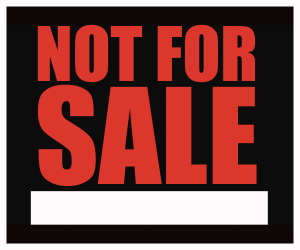 Over the years, I’ve talked to many Channel Marketing Pros who worry that an incentive program is just a way to “buy” business. On the face of it, that almost sounds unethical (and a little bit slimy, if you ask me). While it’s true that some programs are basically designed that way, these program types usually don’t have a good long-term outcome. If you can “buy” something it means it’s for sale… which means there will be other buyers in the future. The channel incentive programs that typically end up providing a lasting sales lift are those that reward for “good behavior.” By good behavior I mean actions that lead to sales or better service. This is reflected in the fact that some program mangers have even begun eschewing the label of “incentive programs” in favor of the more benign term “integrity programs.” Whatever their name, these types of programs that reward for certain behaviors not only take your channel engagement from “slimy” to “sincere,” they also often end up yielding much higher ROIs.
Over the years, I’ve talked to many Channel Marketing Pros who worry that an incentive program is just a way to “buy” business. On the face of it, that almost sounds unethical (and a little bit slimy, if you ask me). While it’s true that some programs are basically designed that way, these program types usually don’t have a good long-term outcome. If you can “buy” something it means it’s for sale… which means there will be other buyers in the future. The channel incentive programs that typically end up providing a lasting sales lift are those that reward for “good behavior.” By good behavior I mean actions that lead to sales or better service. This is reflected in the fact that some program mangers have even begun eschewing the label of “incentive programs” in favor of the more benign term “integrity programs.” Whatever their name, these types of programs that reward for certain behaviors not only take your channel engagement from “slimy” to “sincere,” they also often end up yielding much higher ROIs.
To illustrate the point, I wanted to share a study shared by my friend and persuasion expert, influencer, Brian Ahearn. Brian blogs about Influence and Persuasion at InfluencePeople.
The study is about how to get the best survey participation and to move the channel partners to invest their time to respond. With one group of business owners a $50 reward was offered for completing the questionnaire. With the rest of the business owners a $5 check was sent to acknowledging their time was valuable and they appreciated them taking time to complete the questionnaire.
Here are the result in Ahearn’s own words, “And what were the results? You’d think the $50 offer being 10 times more would definitely get a better response but it didn’t. Only 23% of those offered the big reward filled out the questionnaire but 52% who were given the $5 gift up front complied with the request. So the response was more than twice as much in the gift scenario and there was a huge savings depending on exactly how many people cashed the $5 check. If every person, including those who didn’t fill out the questionnaire, cashed the check, the savings would be 57%. If only those who completed the questionnaire cashed the check the health company would have saved 77%! “No matter how you look at it, more than doubling the response at a substantial savings is the smart business decision.”
We see similar stories all the time in Channel Incentive Programs. We are much more likely to inspire loyalty and receive the “big order” if we reward from the beginning for smaller yet significant behaviors and Steps-to-the-Sale. 
Here are some examples of smaller goals that can be critical Steps-to-the-Sale.
- Increased Deal Registration
- Training Completions
- Individual Sales and Goals
- Target Prospect Engagements
- Customer Introductions
- POC or Evaluation Placements
- Case Study Submittals
Remember: When it comes to Channel Marketing Programs, don’t strategize how to “buy” business, but give smaller incentives for smaller behaviors. Those smaller incentives can accumulate and lead to BIG rewards. And those smaller behaviors lead to BIG loyalty from you Channel Partners.
How do you design the right channel incentive program?
What are the Steps-to-the-Sale in your particular sales channel? And are you properly rewarding for your channel’s most important behaviors?
As always please reach out with questions or comments!
Move the Channel,
Travis